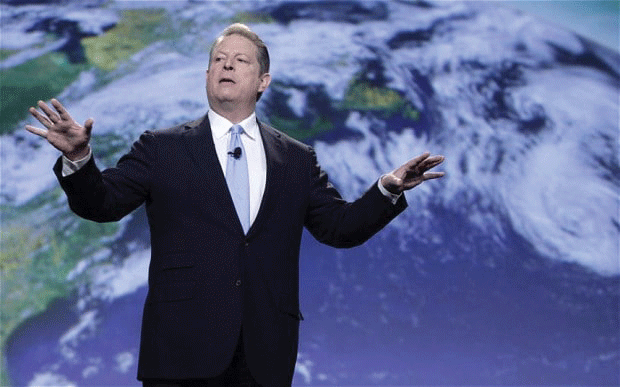An Inconvenient Sequel Inspires Hope
Colgate’s emphasis on environmental awareness and activism reached a high point on Thursday, September 14, when Elizabeth Kolbert, author of the The Sixth Extinction, spoke to the campus body. The Friday Night Film Series, a regular staple of the Film and Media Studies department, showcased An Inconvenient Sequel: Truth to Power on Friday, September 15 at the Hamilton Movie Theater, in tandem with Kolbert’s work. The film is a continuation of and a response to former Vice President Al Gore’s 2006 documentary, An Inconvenient Truth. The first installment was a seminal contributor in bringing climate change and policy to the public eye.
The Director of the Film and Media Studies Program Mary Simonson, stressed how special it was to be screening An Inconvenient Sequel as part of the Friday Night Film Series.
“Still a limited release, we didn’t think we were going to be able to get [An Inconvenient Sequel], but the stars aligned and it’s here,” Simonson said.
The documentary opens with panoramic views of exploding glaciers, akin to a Michael Bay movie, set to a sound montage of global warming denials that must have cut straight to the heart of former Vice President Gore. The notion that rings as the ultimate plea of the documentary is that the world we live in today consists of a barrage of rhetoric that denies scientific fact too easily validated by extreme climate and weather patterns. The film claims that the environment is rapidly adapting to our destructive habits, and we aren’t responding fast enough.
Gore’s travels intersperse the film as we see him delivering lectures and experiencing the firsthand effects of climate change across the world. He finds himself in flooded streets in Florida, which are due to sea levels rising. The scene’s images are analogous to those of Hurricane Irma, which hit Florida just this month. As state officials gather with Gore around a water pump failing to keep the streets clear, he looks on with a disappointed face and cold eyes.
“You can’t pump the ocean,” Gore said, leaving a bitter look of shame on the officials’ faces for their lack of action in attempting to curb climate change.
Indeed, political inaction is a common theme in the film. We see Gore struggling against an obstacle of leaders who refuse to aid in environmental activism. And when current President Donald Trump pulls out of the Paris Agreement, completed at the Conference, Al Gore meets his toughest battle yet.
But Gore pulls through the wreckage of the president’s decision and leaves the documentary with a note of hope. He details the massive strides countries around the world have taken to use renewable resources, citing a trade deal between a solar panel company and India. Nowhere in the documentary is hope lost, even if it will take time to start moving in the right direction.
After the film, as I trekked back up the hill to Colgate, the image of Gore, sweaty and shaking with passion, remained imprinted in my mind. His words resonated in my ears.
“We are close,” Gore said, quite simply in reference to the success of the modern environmental movement.
I looked around our campus and its attempts to educate and improve in this world of environmental disaster, and couldn’t help but agree. We are close.
Contact Andrew Kish at [email protected].






